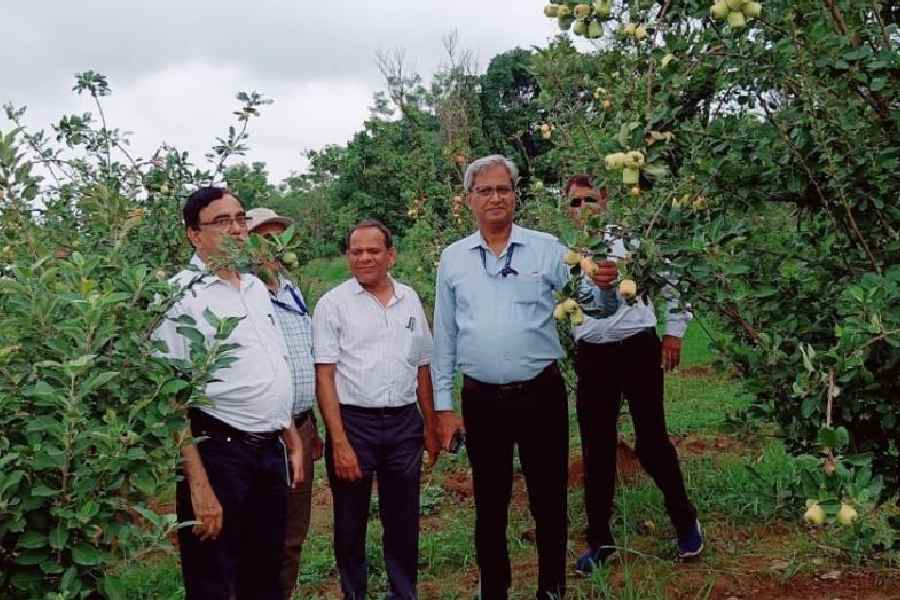Apples can be grown in the humid subtropical climate of Ranchi in the next few years, experts said on Saturday.
Experts at the Ranchi-based Birsa Agricultural University (BAU) have informed that initial testing has indicated apples can be grown in Ranchi too.
“Apple is a temperate fruit crop and primarily cultivated in Jammu and Kashmir, Himachal Pradesh, the hills of Uttar Pradesh and Uttarakhand and to some extent in the northeastern states and Punjab. However, initial experiments at BAU have indicated that it can be grown in Ranchi too,” said a BAU spokesperson.
“At the horticultural biodiversity park of BAU, three apple varieties namely, Scarlet Spur, Jeromin and Anna were planted in February 2022. The variety Anna is bearing fruits this year. At this park, the Anna variety has 18 plants. Last year, this variety bore some fruits too. But the other two varieties did not bear any fruits,” added the spokesperson.
“The Anna variety performed very well and is having good growth and development during this period. All the plants were brought from Dr Y.S. Parmar University of Horticulture and Forestry, Solan, Himachal Pradesh,” the spokesperson said.
“Some mortality has also been observed in these varieties over the last two years. Flowering in apple plants starts in February while fruits mature in July-August,” the spokesperson informed.
“This was only a pilot trial, just to see the fruiting ability of the variety. The Anna variety can produce fruits in Ranchi’s weather conditions. Its quality, taste and yield per hectare, with a full package of practices for this region, will be needed for its final recommendation. It requires further experimentation and then only we can be in a position to recommend commercial cultivation on a large scale,” said biodiversity park in-charge Abdul Majid Ansari.
University vice-chancellor S.C. Dubey with the dean of forestry, M.S. Malik, and the director of research, P.K. Singh, visited the horticultural biodiversity park on Friday and suggested evaluating more varieties and developing a suitable package of practices to explore the possibility of apple cultivation in Jharkhand.
“The pilot project will take at least three years before apple cultivation begins successfully and the idea is shared with the state government for replication on a mass scale in the state. This will benefit the farmers who can increase their earnings massively while the state residents can get fresh apples at a cheaper price than that available in the market,” the spokesperson said.
Depending on variety and season, a well-managed apple orchard yields an average of 10-20kg of fruits per tree annually.










